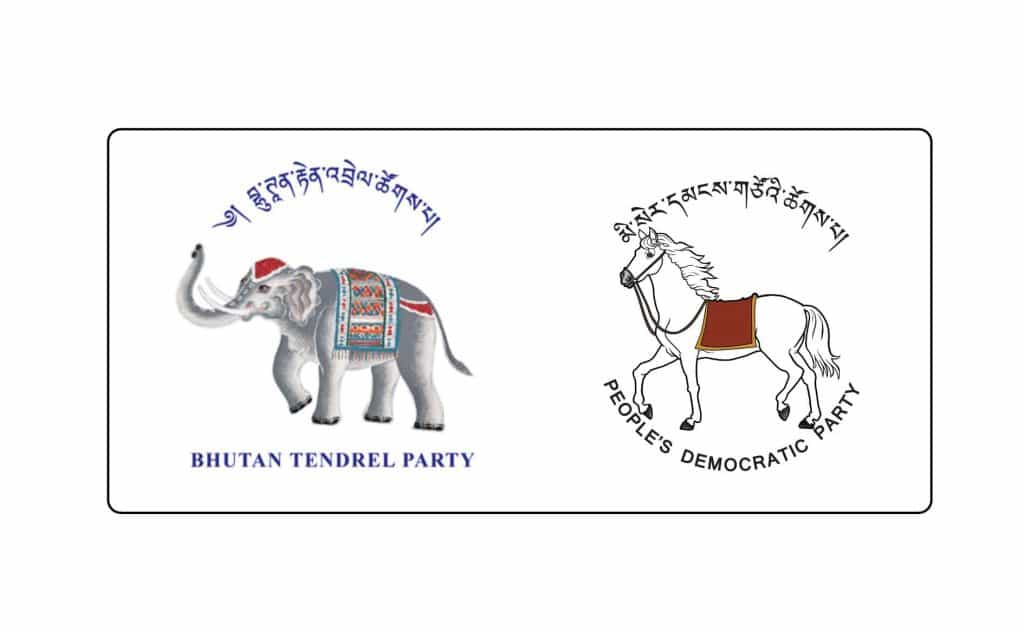Contrasting statements surface as politics and policies come into play
Financial Institutions (FIs) in the country are unhappy with political parties pledging to reduce the interest rate on loans. This comes in the wake of both Bhutan Tendrel Party (BTP) and People’s Democratic Party (PDP) pledging to reduce the interest rates if they are elected to form the government.
Displeased FIs say that there are other factors that come into play before lowering the interest rates. They opined that reducing the interest rate would be unrealistic, while reiterating that FIs in the country are regulated by the central bank and not by the government.
An official from one of the FIs said that the interest rate offered by the banks can be influenced by various factors such as the economic conditions of the country, the policies of the central bank, inflation rates, and reserve positions, amongst others.
The official said that if one has to provide loans with lesser interest rates, then the bank should have good credit scores, while the fixed rates and the variable rates should also be studied before making the decision to provide lowered interest rate.
Similarly, another official said that it is important to highlight that the bank operates within the framework established by the central bank. “As such, all directives and guidance concerning on any operations are provided and governed by the RMA. At this juncture, we don’t have an independent opinion or commentary to offer.”
A banker said that unless the central bank gives the directives to change the interest rate, FIs cannot do anything. However, it is in the hands of the FIs to appropriate the frequency whether the interest rates could be charged on a daily, monthly, quarterly or annual basis.
On the current interest rate, an economics professor with the Royal Thimphu College (RTC), Sanjeev Mehta said that the interest structure in Bhutan is higher than in India and Bangladesh. “Average lending rate in India is 8.7% as compared to 14% in Bhutan.”
Mehta shared that a lower lending rate will enable Bhutanese firms to become more competitive in the export markets. “With inflation rate going down, there is a greater logic to reduce nominal interest rates to keep real rates low.”
However, he said that higher lending rate has allowed the FIs to enjoy a higher rate spread and enjoy greater profitability at lower operational efficiency at the expense of the profitability of the businesses.
“This step will not only force the banks to improve their operational efficiency but also reduce the burden on the businesses,” he said.
The RMA, in its bid to protect the efficiency of FIs, imposed moratorium on loans. Despite this temporary solution, Mehta said that one should understand that the loan moratorium is not a solution to the problem rather it just postpones the problem that would strike with greater impact later.
“So far, it has prevented the businesses from closing down and helped to keep the Non Performing Loan (NPL) of the FIs at lower levels. Once the moratorium is withdrawn, while the health of the economy fails to recover, incidences of loan defaults will rise, banking sector would come under stress as NPLs will start mounting. Financial sector will become more vulnerable,” the professor said.
In addition, the professor said that the whole issue is closely linked to the profitability of the business sector and the bottom line is that the rate of return on capital should be higher than the rate of interest on the borrowed funds.
Meanwhile, Bhutan Tendrel Party (BTP) pledged to improve the access to finance and promoting financial market, especially in priority sector, to accelerate a healthy growth of the economy.
The party pledged to reduce interest rate for loans from FIs ‘in consultation’ with RMA and initiate priority sector loans (corporate/farmers groups) at concessional interest rate, amongst others.
Similarly, People’s Democratic Party (PDP) pledged to purchase apartment or first house constructions in consultation with stakeholders including RMA, PDP pledged to support access to loans by Loan-To-Value (LTV) mortgage ratio from 70% to 95%, and reduce interest rate to 4%, amongst others.
Sherab Dorji from Thimphu














